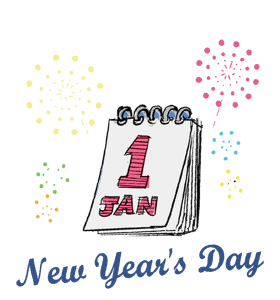New Year's
New Year's Quick Facts in the EU
| HashtagsCompiled on | #NewYear2026 |
|---|---|
| Related Hashtags | #NewYearsEve, #Christmas |
| 2026 Date | 1 January 2026 |
| 2027 Date | 1 January 2027 |
2026 Holidays & Dates - EU
| EU Country Common Holidays | ||
| EU Country National Holidays | ||
| Christian Holidays |
› | ||
